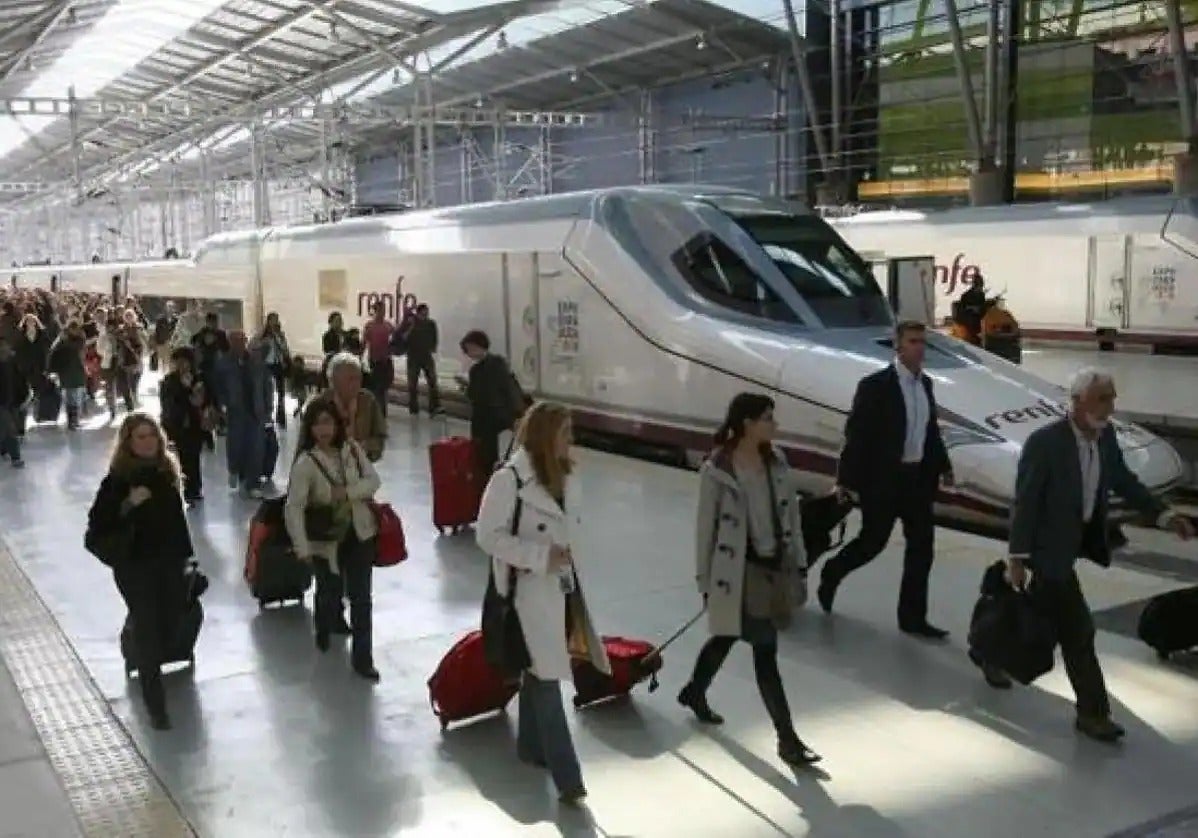Rail unions call off strike that was to due to lead to cancellation of 1,500 Renfe trains in Spain
Negotiators have reached an agreement with the Ministry of Transport just a few hours before the first of five days of stoppages was due to begin over the transfer of the state operator's Rodalies commuter services to Catalonia
Rail unions have called off the national strike in Spain that was to begin this Friday (23 November) after reaching an agreement with the Ministry of Transport, according to sources involved in the negotiations. An agreement has been reached with Renfe and Adif staff to suspend the five days of strikes called due to discontent with the transfer of the state operator's Rodalies commuter service to Catalonia.
At stake tomorrow was the circulation of 1,500 medium and long distance trains - including AVE high-speed trains - which had not been included in the minimum service plan set by the Ministry of Transport, 72% in the case of long distance trains, 65% for medium distance and 50% for Cercanías local commuter at non-peak hours.
The Ministry, headed by Óscar Puente, was involved in negotiations with the unions to avoid a strike that was going to affect tens of thousands of passengers. Representatives have confirmed that the normal timetable for the day will now be resumed, although they admit that there could be some incidents in the early hours of the morning that should be rectified.
The unions claim that they have achieved all their demands, as they have been promised the "guarantee of integrity" of the public companies Renfe and Adif despite the transfer of Rodalies services to Catalonia and the keeping of the workforce.
The minimum service levels originally established for Friday saw almost 30% of AVE and long-distance trains (451 trains out of the 1,185 scheduled to run on tracks throughout Spain) cancelled and 35% of the rest, a total of 1,079 medium-distance trains affected out of the 3,160 scheduled for the day. The UGT union predicted that there would be a "high level participation" of the workforce because all the unions of the general committees of Renfe and Adif were called.
In an attempt to alleviate the impact on passengers, Renfe had allowed passengers to change their tickets to another service, as well as cancelling them or moving them to another date at no cost. In addition to this Friday, there were also 24-hour stoppages planned on Thursday 30 November and 1, 4 and 5 December. Renfe had notified the affected passengers by email or SMS along with the options to change or cancel their journeys.
Although Ouigo and Iryo trains were not directly affected, because the strike also affected Adif workers, delays or unexpected cancellations were expected.
The causes of discontent
Renfe and Adif workers agreed to call for five days of strikes in November and December in the face of the uncertainty generated in the workforce by the transfer of the Rodalies services to Catalonia - agreed between PSOE and ERC in the negotiations for the investiture of Pedro Sánchez. To this discontent was added the entry of a private company (MSC) in the operations of Renfe Mercancías freight service, which also caused uncertainty for the staff, they said. The transfer of Rodalies to the Generalitat regional government will mean that Catalonia will acquire control over the management of lines R1, R2 and R3, including the trains and tracks. Subsequently, other lines will be assessed, according to the agreement between PSOE and ERC.
This all comes at a time when the train is used as a means of transport by millions of Spaniards. The latest data from Adif for the month of October showed that rail traffic in Spain has grown by almost 11%, mainly thanks to the entry of new operators (Ouigo and Iryo) which have reduced ticket prices on the routes they have entered.
In fact, the most significant increase so far this year has been in long-distance traffic, which grew by 33%, particularly in high-speed journeys, which increased by almost 40%.

